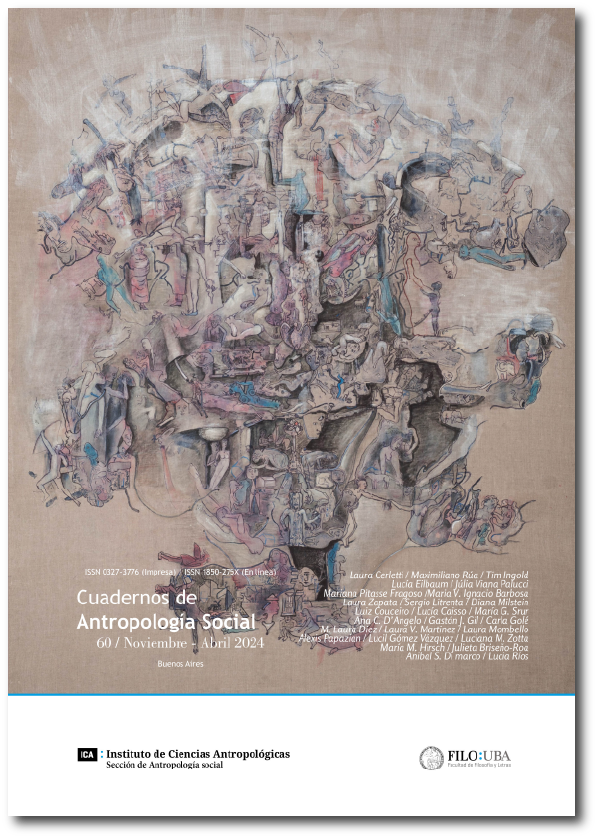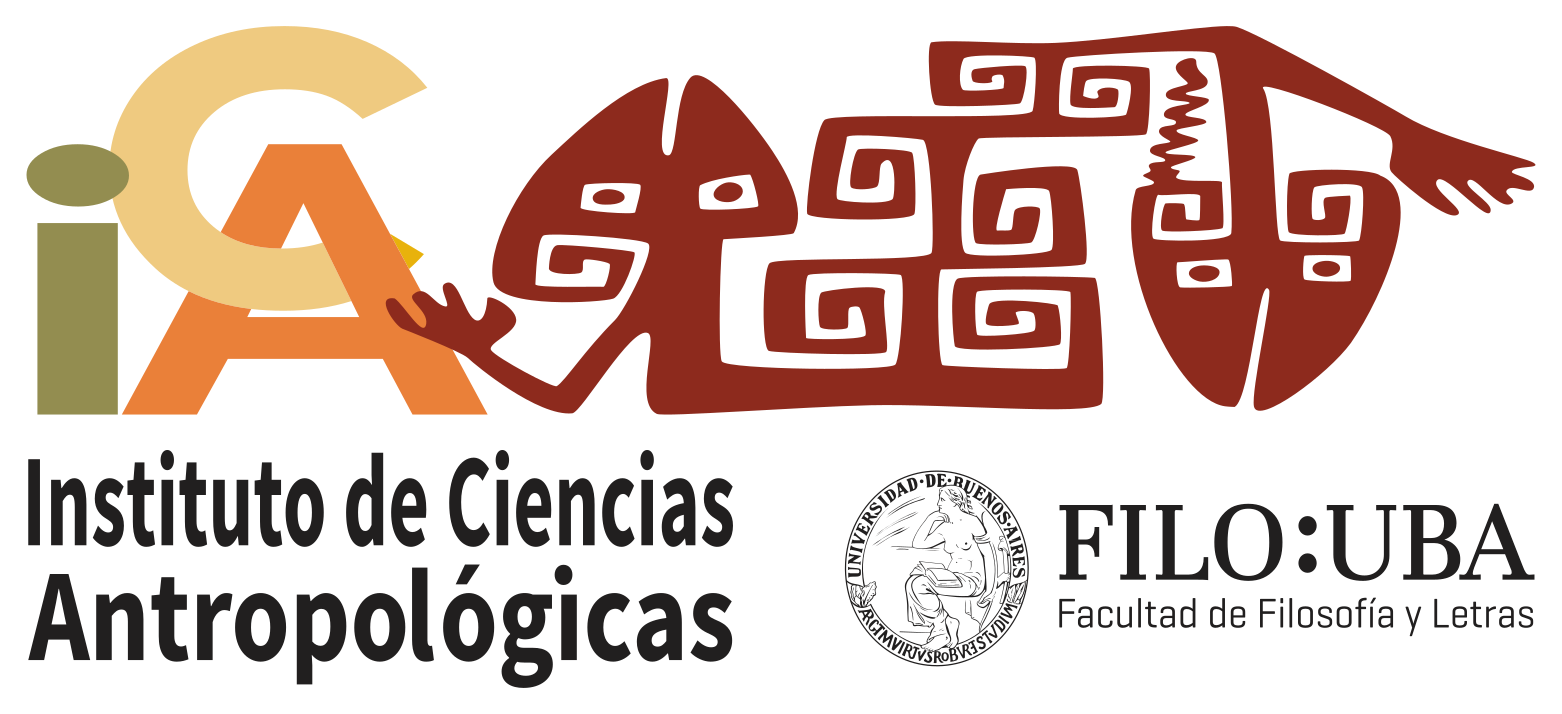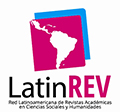Pedagogical ecosystems in situations of educational hostility: an exercise in autoethnography and self-reflexive anthropology
Abstract
I intend to present ethnographic-based arguments about a teaching-learning experience in a university environment to support the validity of the analytical use of the concept of pedagogical ecosystems, to understand situations of educational hostility. In the text, the students' perspectives of understanding are a fundamental part of the discussions, established from specialized literature in anthropology in educational processes, but not only. In this article, I operate in the register of analysis of an exploratory pedagogical exercise of autoethnography and self-reflexive anthropology.Downloads
References
AUTOR(A) & OUTRO(A).
BATESON, G. (2000). A theory of play and fantasy. In G. Bateson, Steps to an ecology of mind, (pp. 177-193). Chicago & London: The University Press of Chicago.
BOURDIEU, P. (2012). As contradições da herança. In P. Bourdieu, Escritos de educação, (pp. 229-237). Pretrópolis: Vozes.
CASSIRER, E. (1997). A filosofia do Iluminismo. 3ª. Edição. Campinas: Editora da UNICAMP.
DAS, V. (1995). Critical events. An anthropological perspective on contemporary India. New Delhi: Oxford University Press.
DAS, V. (2011). O ato de testemunhar: violência, gênero e subjetividade, Cadernos Pagu, 37, 9-41.
DAS, V. (2020). Vida e palavras. A violência e sua descida ao ordinário. São Paulo: Unifesp.
DENSHIRE, S. (2014). On auto ethnography, Current Sociology Review, v.62 (6), 831-850.
ELIAS, N. (1987). Part II: The fishermen in the Maelstrom. In N. Elias, Involvement and detachment, (pp. 43-118). Oxford & New York: Basil Blackwell.
EVANS-PRITCHARD, E. E. (1949). The Sanusi of Cyrenaica. London: Oxford: Oxford University Press.
EVANS-PRITCHARD, E. E. (1951). Kinship and Marriage Among the Nuer. Oxford: Clarendon Press.
EVANS-PRITCHARD, E. E. (1995). Os Nuer. Uma descrição do modo de subsistência e das instituições políticas de um povo nilota. São Paulo: Perspectiva.
FAVRET-SAADA, J. (1977). Les Mots, La Mort, Les Sorts. Paris: Gallimard.
FAVRET-SAADA, J. (2005). Ser afetado, Cadernos de Campo, n.13, 155-161.
GAMA, F. (2020). A autoetnografia como método criativo: experimentações com a esclerose múltipla. Anuário Antropológico, v.45 n.2, 188-208.
HARAWAY, D. (2003). The companion species manifesto. Dogs, people, and significant others. Chicago: Prickly Paradigm.
HORST, H.; MILLER, D. (2006). The cell phone. An Anthropology of communication. Berg, London.
INGOLD, T. (1995). Humanidade e Animalidade, Revista Brasileira de Ciências Sociais, 28.
INGOLD, T. (2006). Sobre a distinção entre evolução e história, Antropolítica, n.20, 17-36.
INGOLD, T. (20000). The perception of the environment. Essays in livelihood, dwelling and skill. London: Routledge.
INGOLD, T. (2010). Da transmissão de representações à educação da atenção, Educação, v.33, n.1, 6-25.
INGOLD, T. (2012). Trazendo as coisas de volta à vida: emaranhados criativos num mundo de materiais, Horizontes Antropológicos, ano 18, n. 37, 25-44.
INGOLD, T. (2015). O Dédalo e o labirinto: caminhar, imaginar e educar a atenção, Horizontes Antropológicos, ano 21, n. 44, 21-36.
LATOUR, B. (1988). The pasteurization of France. Cambridge: Harvard University Press.
LÉVI-STRAUSS, C. (1975). A eficácia simbólica. In C. Lévi-Strauss, Antropologia estrutural, (pp. 215-236) Rio de Janeiro: Tempo Brasileiro.
LÉVI-STRAUSS, C. (2011). Finale. In C. Lévi-Strauss, Mitológicas IV: o homem nu, (pp. 603-670) São Paulo: Cosac & Naif.
LOWITH, K. (1991). O sentido da história. Lisboa: Edições 70.
MARCUS, G. & CUSHMAN, D. (1982). Ethnographies as texts, Annual Review of Anthropology, v.11, 25-69.
MAUSS, M. (2003). As técnicas do corpo. In M. Mauss, Sociologia e Antropologia, (pp. 399-422). São Paulo: Cosac & Naify.
MINTZ, S. W. (2010). Cultura: uma visão antropológica, Tempo, n.28, 223-237.
OVERING, J. (1986). Images of cannibalism, death and domination in a “non violent” society, Journal de la Société des Américanistes, Tome 72, 133-156.
PEIRANO, M. G. S. (2006). 3. A alteridade em contexto: o caso do Brasil. In: M. G. S. Peirano, A teoria vivida e outros ensaios de antropologia (pp. 53-67). Rio de Janeiro: Jorge Zahar Editor.
SAHLINS, M. (1976). The use and abuse of biology. An anthropological critique of sociobiology. Michigan: The University of Michigan Press.
SIGAUD, L. (1995). “Fome” e comportamentos sociais: problemas de explicação em antropologia, Mana, 1(1), 167-175.
SIGAUD, L. (2007). Doxa e crença entre os antropólogos, Novos Estudos Cebrap, 77, 129-152.
STOCKING Jr., G. (1992). Anthropology as Kulturkampf: science and politics in the career of Franz Boas. In G. Stocking Jr., The ethnographer´s magic and other essays in the history of Anthropology (pp. 92-113). Madison: The University of Wisconsin Press.
STRATHERN, M. (2014). Os limites da autoetnografia. In M. Strathern, O efeito etnográfico e outros ensaios (pp. 133-157). São Paulo: Cosac & Naifty.
THORNTON, R. (1983). Narrative ethnography in Africa, 1850-1920: the creation and capture of an appropriate domain for Anthropology, Man, New Series, vol. 18, n. 3, sep., 502-520.
THORNTON, R. (1985). “Imagine yourself set down...”: Mach, Frazer, Conrad, Malinowski and the role of imagination in ethnography, Anthropology Today, vol. 1, n. 5, 7-14.
TSING, A. L. (1993). In the realm of the Diamond Queen. Maginality in an out-of-the-way place. Princeton: Princeton University Press.
VERSIANI, D. G. C. B. 2005. Autoetnografias. Conceitos alternativos em construção. Rio de Janeiro: 7Letras.
VIVEIROS DE CASTRO, E. (2002). Perspectivismo e multinaturalismo na América indígena. In E. V. de Castro, A inconstância da alma selvagem e outros ensaios de antropologia, (pp. 345-399). São Paulo: Cosac e Naif.
Copyright (c) 2024 Luiz Couceiro

This work is licensed under a Creative Commons Attribution 4.0 International License.

Esta obra está bajo una Licencia Creative Commons Atribución 4.0 Internacional
Cuadernos de Antropología Social sostiene su compromiso con las políticas de Acceso Abierto a la información científica, al considerar que tanto las publicaciones científicas como las investigaciones financiadas con fondos públicos deben circular en Internet en forma libre, gratuita y sin restricciones.
Los contenidos y opiniones expresadas en los artículos publicados son de entera responsabilidad de sus autores.
Los autores/as que publiquen en esta revista aceptan las siguientes condiciones:
- Los autores/as conservan los derechos de autor y ceden a la revista el derecho de la primera publicación, bajo la licencia de atribución de Creative Commons, que permite a terceros utilizar lo publicado siempre que mencionen la autoría del trabajo y a la primera publicación en esta revista.
- Los autores/as pueden realizar otros acuerdos contractuales independientes y adicionales para la distribución no exclusiva de la versión del artículo publicado en esta revista (p. ej., incluirlo en un repositorio institucional o publicarlo en un libro) siempre que indiquen claramente que el trabajo se publicó por primera vez en esta revista.















